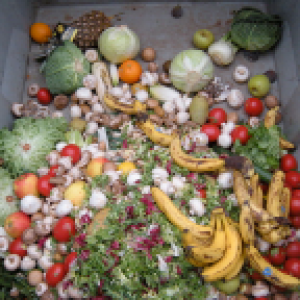
"Life cycle assessment of food waste management options", Sven Lundie and Gregory M. Peters, Journal of Cleaner Production, Volume 13, Issue 3 , February 2005 This Australian study made an environmental assessment of in-sink food waste processor (FWP) unit, home composting, landfilling food waste with municipal waste ("codisposal") and centralised composting of green (food and garden) waste.
The functional unit was defined as the management of the food waste produced by a Sydney household in one year. The environmental assessment includes eight environmental indicators and impact categories, including energy use and global warming potential.
The LCA study concluded that if operated aerobically, home composting has the least environmental impact in all impact categories. The environmental performance of the co-disposal option was relatively good in many respects except for its climate change and eutrophication potential.
The FWP performed well in terms of energy usage, climate change and acidification potentials, although it made a large contribution to eutrophication and toxicity potentials. Compared with the other three options, centralised composting had a relatively poor environmental performance due to the energy-intense waste collection activities it requires. The study pointed out that implementing a separate collection and transportation system for organic waste results in relatively high environmental impacts due to the frequency of collections and the small quantities of green waste collected per household. It also pointed out that compared with European cities, significantly larger distances have to be travelled in Sydney and that therefore this conclusion may not hold elsewhere.
Importantly, the study found that although home composting was clearly the best option if undertaken properly, there is an important caveat to this result. If operated without due care, home composting loses its advantages due to the high greenhouse gas emissions which result from anaerobic methanogenesis. In other words, although home composting has the capacity to be the best food waste management option, it can also perform worst. This emphasises the importance of strategies for getting people to compost their waste properly.



Post a new comment »